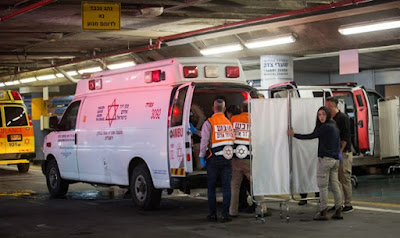by Hillel Fendel
The Knesset Health Committee held an important session this month on the topic of the lack of emergency women's care centers in Yesha (Judea and Samaria).
The session was initiated by Committee Chair MK Idit Silman (Yemina), who said she had received many complaints on the topic by Yesha residents. The session painted a torturous picture for pregnant women and others with related urgent conditions in Yesha.
The session was attended by women of Yesha who told their own difficult personal stories. One woman said she actually had to stop her fertility treatments because the long travel time from her home to the clinic in central Israel was simply too exhausting for her. Another woman related that she had been diagnosed with preeclampsia (a potentially fatal pregnancy complication), yet chose to forego medical care because of the difficult and long travel times.
Yesha Council Director-General Yigal Dalmoni presented the committee with the relevant stats, including Yesha's very high population growth rate of 3.8%, and between 7,000 and 9,000 births each year. He said that in the city of Ariel, one of Yesha's largest with a population of close to 22,000, a woman seeking urgent pregnancy care must travel over an hour to the nearest clinic. The long trips are accompanied by the twin problems of growing transportation density (long traffic jams) and the discomfort of traveling while pregnant.
Health Ministry and Health Fund representatives agreed that the lack of women's medical care will only become more acute in the coming years, partly because of a shortage of manpower.
Dr. Yoram Wilf, of the Meuchedet Health Fund, said, "The situation will only get worse. Most of the women's health doctors are women – and they work 20% less than men."
Achiya Yosef Leibo, who has written a comprehensive article on the topic, told the Knesset committee: "It's a fact: There is no place [in Yesha] for women to have follicle tests, to track fertility treatments, and the like. Even the simplest tests require 60-90 minutes of travel. In pre-1967 Israel, such tests can be taken five days a week even in cities smaller than those in Yesha, while the few testing centers that exist in Yesha are open only one or two days a week – for tests that have to be taken every two days."
MK Silman said, "We have been informed, during this session, that the Clalit Health Fund plans to open a women's medical care center in Ariel – but more must be done, in order to open a general center in Ariel for the members of all the health funds." She said that the Maayanei HaYeshua hospital in Bnei Brak has expressed its consent to raise the gauntlet on such a project.
